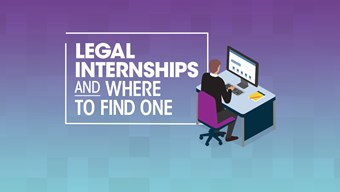It might surprise you that Rebel Wilson, star of Pitch Perfect and Bridesmaids, has a law degree, and Gerard Butler was famously sacked from his traineeship at Edinburgh law firm Morton Fraser one week before qualification.
By Editorial Team. 10 June 2020. Last updated 10 January 2024.
Law degrees are not just for lawyers. Legal skills come in handy in many areas. For example, business, politics, finance, and the civil service is packed with former lawyers. However, given the amount of effort it takes to become a solicitor or barrister in the first place it may take some guts to leave. How do lawyers prepare to take the plunge and is it nerve-wracking?
“Of course one feels a pang of regret when doing the last cases, putting the wig away, letting the practising certificate lapse – but, in my case at least, it has worked out really well and I would encourage people to consider the breadth of careers available to them given the skillsets they’ve acquired in the law rather than plugging away because they think they have to,” says Alex Deane, a barrister and Senior Managing Director at FTI Consulting, a global business advisory firm. He was Chief of Staff to two shadow education secretaries, was the founding director of the independent civil liberties campaign group Big Brother Watch, is an author and writer, and regularly appears on TV.
“I practised for five years and remain a door tenant of two chambers – Farringdon Chambers, where I finished my practice, and Whitestone Chambers, where I explore opportunities to work on broader reputational work with chambers. I worked in politics before I went to the Bar, thinking that the law was my vocation – but I found myself missing politics dreadfully. In my case of course this was a decision affected by the appalling way that the criminal Bar has been treated in recent years, so financially it was not such a hard decision.
“My legal experience helps me in my work now at FTI Consulting – the firm provides professional services support to most of the world’s leading law firms, and we are often instructed alongside law firms on reputation matters, so an understanding of legal issues and an ability to read a brief is useful.”
Switching careers can, of course, be hard work – sometimes you even need to juggle two jobs for a while. Entrepreneur Pete Dowds was working as a M&A associate at DLA Piper in 2012 when he noticed you could book a hotel or pizza online but not a cleaner. Some 100-hour weeks followed as he set up Mopp with a friend from university. “I was jumping out of completion meetings to interview cleaners at the nearby Starbucks,” Dowds recalls. He left to work full-time on the business start-up, which they scaled up to tens of thousands of people across the UK and sold to US company Handy in 2014 in a multi-million-pound deal.
Prior to Mopp, however, Dowds and his business partner were business rookies – apart from once making a “disastrous” attempt to import Japanese beer – so how did they know what to do?
“In short, you have no clue,” Dowds says. “I didn’t know how to raise venture capital, what a marketplace was, how to make the technology. The learning curve was incredibly steep. You make an insane number of mistakes but, in starting a business, the biggest thing is just to keep going, you need a lot of luck, but you need to keep going, put one foot in front of the other.”
In 2015, they started a new business, Elder; a tech-enabled service that provides carers on a flexible basis so that people can continue to live in their own homes for as long as possible. The idea for the business came when Dowds’ grandmother had to move into a care home and, although the family felt it was too soon, there was no other option. Elder is now being used everywhere in the UK and is growing at 10 times the rate of Mopp. Dowds, who is 32, says he will not be selling this business on and aims to stay with it for the long term. He says: “I was looking for something mission-driven, with more purpose, and this is it for me now.”
The lesson then is that legal experience can be a strong springboard to another career and, even if you don’t know what you’re doing, determination can pull you through.
Journalist Noreen Barr was in the process of applying for traineeships when she landed work experience on her local newspaper, stayed for 10 weeks and “wrote hundreds of letters asking for a job”. She worked for a tabloid newspaper and in the features department at Press Association, where she now acts in a more managerial role as Executive Editor, Features.
“Studying law massively helped me, and I use the skills I developed at university every single day,” she says. “It taught me to think logically about situations and see all sides of an issue, which has proved really useful. My advice is, if you feel a drive to do something then do it. Do work experience, find out as much as you can, and be determined.”
A version of this article was first published in Verdict magazine - Read issue four, our Careers Special, now.


